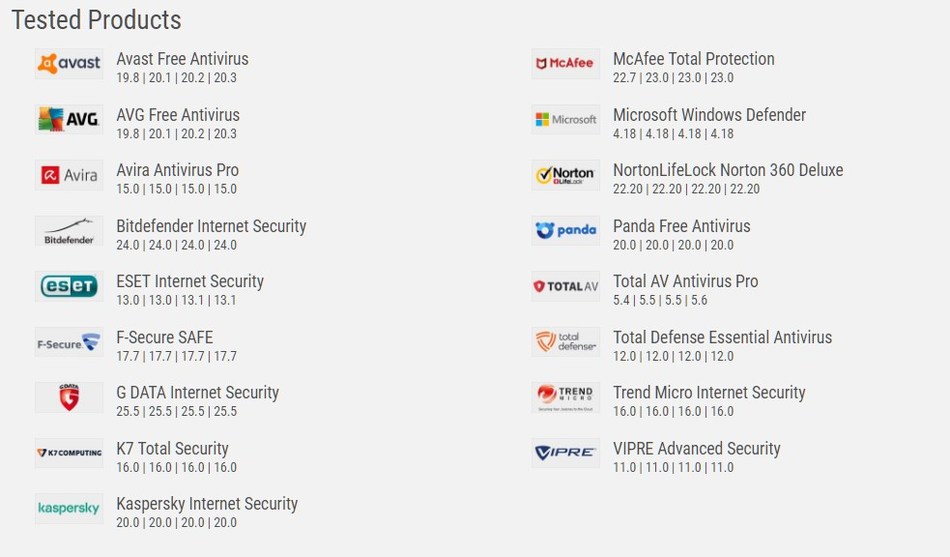Which Antivirus Software Protects Best?
17 popular antivirus programs were put through a series of 3 tests by AV-Comparatives, to determine how effectively they protect against threats, and what effect they have on system performance. For each test, 3 categories of award were given: Advanced+, Advanced, and Standard.
“Ransomware, Phishing, Malware, Zero-Days. Cybercriminals use lot of different threats to attack your computer. We highly recommend using an antivirus software to protect your device.” – Peter Stelzhammer, co-founder, AV-Comparatives
Overall, the test series provides an in-depth analysis of the protection and usability qualities of the tested programs. Individual test reports for the three tests can be downloaded free of charge from AV-Comparatives’ website:
February to May 2020 Test Results
Products tested:

The three tests in the series were as follows. The Real-World Protection Test simulates the actions of a typical user, who inadvertently encounters malware while online. The test allows all the protection components of the tested programs to be used, e.g. URL blockers, reputation services, heuristics, local and cloud-based signatures, and behavioural detection. For each malware sample, a tested product is credited with a pass if at any stage it prevents the system being infected.
The Malware Protection Test considers malicious programs entering the system from sources such as USB flash drives or the local area network. Again, all relevant protection mechanisms can be used, and a tested program will pass if it ultimately prevents the computer being infected.
The Performance Test investigates what effect each program has on the speed of everyday computer usage.
A potential problem with antivirus software is false alarms, i.e. detecting harmless, legitimate programs as malware. With both the Real-World Protection Test and Malware Protection Test, false-positives tests are conducted, to ensure that the tested programs do not plague the user with false alarms. Products with high levels of false positives have their award levels reduced.
“Cybercriminals are catching up. It is more important than ever to protect your device, no matter if it is a laptop, a workstation or a smartphone.” – Peter Stelzhammer, co-founder, AV-Comparatives:
Additionally, several other test reports covering various security aspects have been released in the first half year, such as a VPN Security Test, Router Security Test, Stalkerware Test, Mac Security Test, Android Security Test and Parental Control Test.





Thank you for a manual roundup, Duncan. Antivirus software was originally developed to detect and remove computer viruses, hence the name.However, with the proliferation of other kinds of malware, antivirus software started to provide protection from other computers as well. Any software development company in the USA is trying to use antivirus protection while creating their apps.